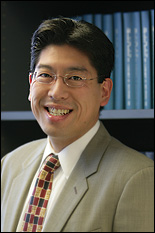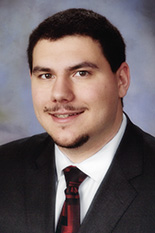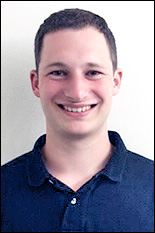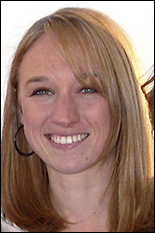News Story
NSF CAREER Award for Hsieh Research

Assistant Professor Adam Hsieh.
Fischell Department of Bioengineering Assistant Professor Adam Hsieh has received a $400,000 National Science Foundation (NSF) Faculty Early Career Development (CAREER) Award for a proposal titled "Engineering Cellular Mechanotransduction." The research will be conducted in Hsieh's Orthopaedic Mechanobiology Laboratory.
Hsieh's project involves the use of cellular engineering, specifically a form of genetic manipulation known as RNA interference, to modify the functionality of a cell. In this case, his goal is to customize mechanotransduction, the way that cells perceive and respond to mechanical stress, by either amplifying or reducing intercellular communication to achieve a desired result. The project investigates mechanotransduction at different levels: in the tissue immediately around the cell, at the boundary between the inside and outside of the cell, and signaling within the cell.
"Being able to control the way cells respond to mechanical stress could have a significant impact on tissue engineering-based treatments for chronic disorders such as degenerative disc disease and other kinds of back pain," Hsieh explains.
The award will also fund several educational objectives centered around Hsieh's research, including the introduction of new classroom and research opportunities for undergraduate and graduate students, and the expansion of his current outreach program, which provides demonstrations at high schools and invites local pre-engineering students to campus to participate in bioengineering projects.
The NSF CAREER program supports the career development of outstanding junior faculty who most effectively integrate research and education within the goals and missions of their programs, departments, and schools.
For More Information:
To learn more about Professor Hsieh's research, visit the Orthopaedic Mechanobiology Laboratory website »
To learn more about the NSF CAREER Award, visit www.nsf.gov/career »
Published January 26, 2009













